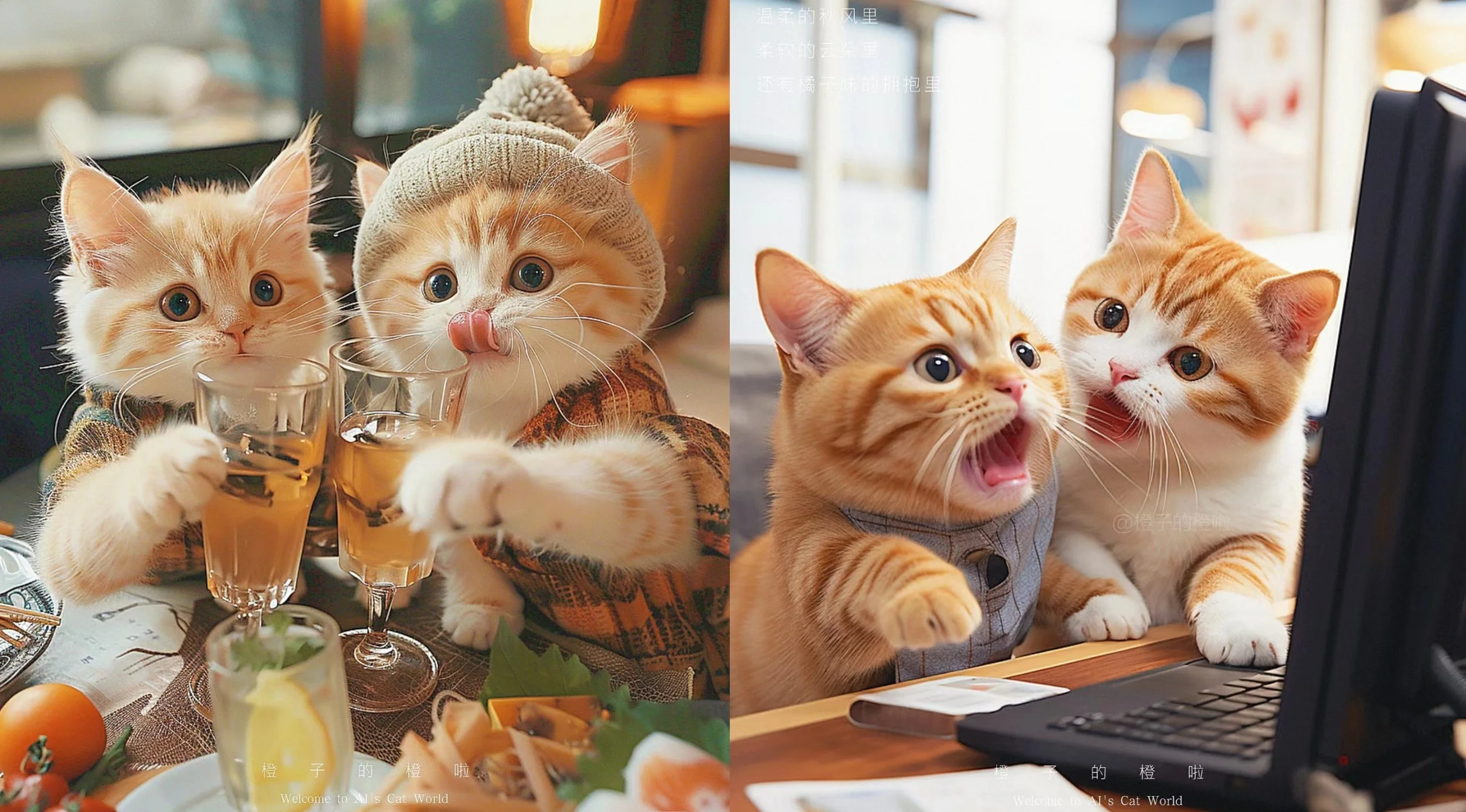'Ugly-cute' portrait photos generated with clay filter from Remini go viral in China
Social platforms like Xiaohongshu and WeChat Moments have recently been buzzing with portrait photos generated with Remini's clay filter AI. Remini, a paid app from abroad, allows users to upload their portrait photos and apply various filters, including the most popular clay style. Unlike typical beautifying filters, this one makes the portraits look somewhat 'ugly-cute.' Despite its quirky nature, this unique style has gone viral on social media. On trend-spotting app Xiaohongshu, each topic that relates to clay fillters enjoys over 10 million views, and there are over 30,000 posts under the hashtag #Remini.
Portrait photos generated with clay filter are popular on Xiaohongshu/RED
Portrait photos gennerated with Remini's clay filter AI (before and after). Images: @QB on Xiaohongshu/RED
Portrait photos generated with Remini's clay filter AI (before and after).Images: @小白斯基 on Xiaohongshu/RED
Netizens used Remini's clay filter to transform portrait photos from the popular historical fiction TV series The Empresses in the Palace, also known as The Legend of Zhen Huan. Images: Xiaohongshu/RED.
The unconventional and contrasting effect has sparked curiosity and sharing on social media. During peak travel of the May Day holiday, people enjoyed posting their trip photos. By using the clay filter, they could skip the hassle of editing while attracting more attention and likes with its unique style, seeing it become very popular.
Because many of the clay filter's training images are from abroad, some users noticed that the filtered characters look particularly western. Not long ago, Remini introduced a new 'jade' filter, also known as the porcelain doll filter. Some bloggers have highlighted it as 'a better filter for Chinese babies,' making it more suitable for local aesthetics.
The original portrait photo from China Skinny's Zeyu Chen.
Generated with Remini's clay filter. Portrait photo from China Skinny's Zeyu Chen.
Generated using Remini's jade filter, which many believe is more suitable for Chinese faces. Portrait photo from one China Skinny's Zeyu Chen
Interestingly, Remini is only available on the iOS App Store in China, so iPhone users can download and use it, while Android users have to rely on others for help. Some people are even offering paid customization services on China's largest second-hand platforms, Xianyu, with prices ranging from ¥1 ($0.14) to over ¥10 ($1.40) per photo. This ‘limited supply’ has sparked even more curiosity and accelerated the spread of the clay filter. Remini topped the Apple App Store's free chart for several days.
Remini clay filter services are most commonly priced at ¥1 per photo on Xianyu.
However, as an AI-generated tool, it's not without flaws. All AI models can produce unstable outputs and occasional errors. For example, in the image below, the hat brim and eyes are misaligned.
A flawed photo generated with Remini's clay filter. Images: Xiaohongshu/RED
Remini offers a free first week services but charges ¥68 ($9.40) per week afterward. Many users find it too expensive, signing up for the free trial out of curiosity and then quickly cancelling their subscription. In response, domestic photo editing apps like Meitu Xiuxiu (美图秀秀) and Miaoya (妙鸭) have introduced their own clay filters for free. Even Xiaohongshu has launched a clay filter function free of charge. The real test of Remini's appeal in China will lie in how many users opt to paid subscription after the 7-day free trial. Behind its social buzz, Remini is primarily focused on acquiring new users, for which it needs to constantly come up with creative and differentiated expressions to expand its user base.
Remini has drawn many users who do not pay attention to AI or have no experience with it to join in. Its emergence may be a turning point. Its value lies not in providing hot topics for marketing, but rather in stimulating marketers to explore new ways to use AI-generated content in digital marketing.





















